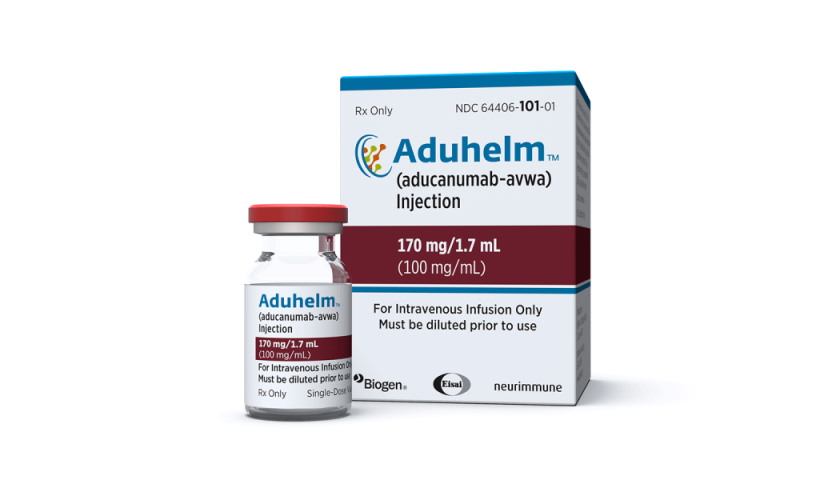Biogen updates on its confirmatory Aduhelm trial

Biogen and partner Eisai have said they will provide details next March for the confirmatory trial that will be needed to upgrade the drug's accelerated approval for controversial Alzheimer's drug Aduhelm to a full one.
Aduhelm (aducanumab) was approved by the FDA in June, but has been held back by a glacial rollout as clinicians have questioned the data on which the decision to clear the drug was based, plus a $56,000 per year price tag, which has in turn led to pushback by payers.
Assuming the FDA is happy with the proposed protocol for the phase 4, post-marketing trial, patient screenings are expected to start next May, with results expected in 2026, according to Biogen.
That means of course it will still be four years before the trial will provide the answers sought by neurologists about Aduhelm's efficacy and safety, and in the meantime the drug will be available for prescribing to patients.
It's worth noting that the timeframe is considerably shorter than the nine year that was allowed by the FDA to complete the study, a decision which has drawn considerable criticism. The market for Alzheimer's drugs could be very different when it reads out however, as rival drugs from Eli Lilly and Roche could also be available by then.
"We are delivering on our commitment to accelerate the timelines with the goal to complete the confirmatory study well ahead of schedule," commented Priya Singhal Biogen's interim head of R&D.
Few details are being released yet, but Biogen has confirmed that the study will enrol more than 1,300 patients with early-stage Alzheimer's from the US and overseas and will compare Aduhelm to placebo over the course of 18 months, with a long-term extension to collect follow-up data over four years.
Biogen and Eisai's phase 3 studies that supported Aduhelm's FDA approval – EMERGE and ENGAGE – yielded different results, with the former showing no benefit for the drug and the latter a small but statistically significant slowing in cognitive decline.
The companies eventually combined and re-analysed the data from the two studies in their subsequent marketing application.
Critics say however that Aduhelm was effectively approved on the strength of a biomarker – removal of amyloid from the brain rather than clinical outcomes – and other drugs that have been shown to clear amyloid failed to help patients.
Data from the new trial will be combined with EMBARK, which is re-dosing patients previously enrolled in the PRIME long-term extension study, as well as the ICARE AD real-world study that aims to provide information on the long-term effectiveness and safety of Aduhelm as prescribed in routine clinical practice.
Only a few patients have been getting treated with Aduhelm since launch, with Biogen reporting sales of $1.6 million in the second quarter of the year, falling to just $300,000 in the third against analyst expectations of $12 million.
Biogen has said it expects sales to be "minimal" through the remainder of the year and potentially into 2022 as it waits for the outcome of a review by the Center for Medicare and Medicaid Services (CMS), which isn’t due to deliver recommendations on reimbursement until next year.












